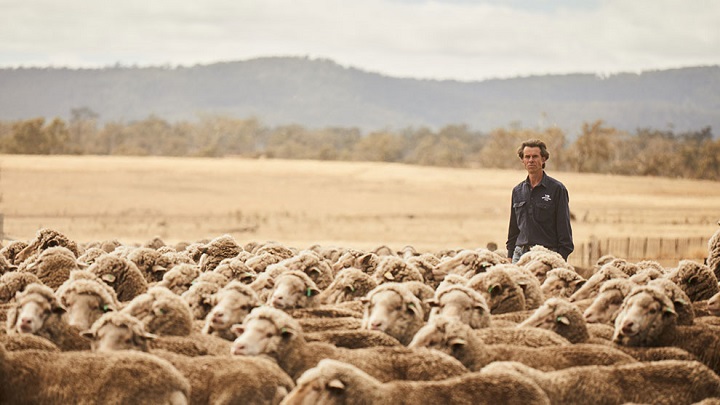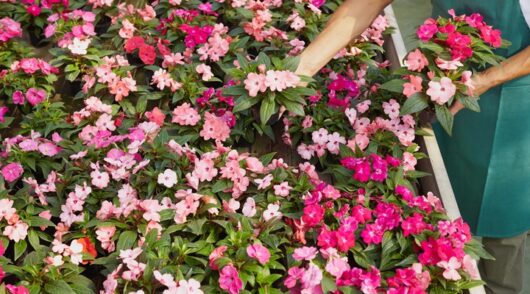Sustainability has become a major buzzword in the fashion industry, as more brands finally start to get serious about reducing their environmental impact. But what does this mean from a supplier’s perspective? We asked Julian von Bibra, the fourth-generation owner of Beaufront Farm in Tasmania, whose premium merino wool is used by the likes of Country Road, MJ Bale and Theory, what he thinks about the rise of sustainable fashion, and how brands’ decisions impact his business. Ins
Inside Retail: Can you tell me about your farm?
Julian von Bibra: The farm is on three locations in the Northern Midlands and Northeast tip of Tasmania. Whilst these farms cover more than 24,000 hectares, much of the land is eucalyptus forest, native grasslands and woodlands and is managed more for conservation than farming.
Merino wool is the number one land-use activity. Numbers of sheep vary throughout the year and in response to low rainfall periods and droughts. Currently, the farms are carrying around 50,000 head.
The farm is supported by a team of 15. This includes stockpersons, machinery operators, maintenance rolls, management, ecology and apprentices. Peak periods like shearing and harvest see additional contractor teams come on board, as well as for ongoing help with fencing, pasture renovation and cropping.
The adult merino sheep produce between five and six kilograms of 17.5-micron wool, whilst the hoggets or one-year-olds’ wool can be as fine as 15.5 microns with cuts closer to three to four kilos. Combined with the broader composite wool, the properties produce over 1,000 bales annually.
IR: Can you tell me about your conservation efforts at Beaufront Farm?
JVB: Our connection to land starts from our first memories and has been instilled in us from both parents and grandparents. As famers, we see our role as custodians and caretakers. Over time, we have come to understand the generations of careful land management that have shaped this landscape, and we wish to nurture this legacy.
Much of our land has high conservation values and is rich in biodiversity. Carefully managed, our merino sheep can have minimal impact and we can protect and enhance this ancient landscape.
IR: What does the climate crisis mean for your business?
JVB: We need to manage our land and farming practises with climate change in mind. Extremes in weather are part of the risks we consider in all our decision-making. We need to ensure adequate shelter for lambing and shearing, retain ground cover to cope with high rainfall events and closely monitor the number of sheep we have to match the grass we grow. Farmers need to work with nature rather than against it.
IR: As a farmer, what do you think about sustainable fashion? And do you think it’s on the rise?
JVB: Sustainability needs to be embraced by all aspects of humanity. It is great that this is now part of the fashion industry with a growing number of brands supporting recycled materials, carbon-neutral product lines and greater awareness of the importance of natural fibres and fashion’s impact on climate change and biodiversity.
This trend is gaining momentum and there seems to be a greater awareness within the market to reuse, recycle and extend a garment’s life. Wool sits well in this space. Being a natural fibre, it requires less washing and with careful use can last for years.
IR: What are your biggest concerns at the moment?
JVB: As farmers, our lives revolve around the seasons and the weather. Climate change has real impacts, and we need robust businesses to be able to cope with droughts and extremes of weather and to build resilience into our landscape to prepare it for a warming climate. Areas of conservation become important refuges for biodiversity; shelter and shade and habitat for rare and endangered species.
Managing the balance between conservation and production within our farming enterprises is a constant juggle. It is great to have customers who share this belief and support our commitment. Market signals that support and encourage farmers to make positive moves to improve animal welfare, recognise our responsibility towards good land management practices and help to grow local rural communities are to be encouraged.
IR: What would you like brands to know about the impact their decisions have on suppliers like you?
JVB: Sourcing quality products from Australia shows leadership and commitment to supporting local initiatives. We get a sense of pride knowing our customers and the expectations they have for how we manage our land, animals, and people. It reinforces that what we believe in is aligned with our customers. We all become connected and engaged.







